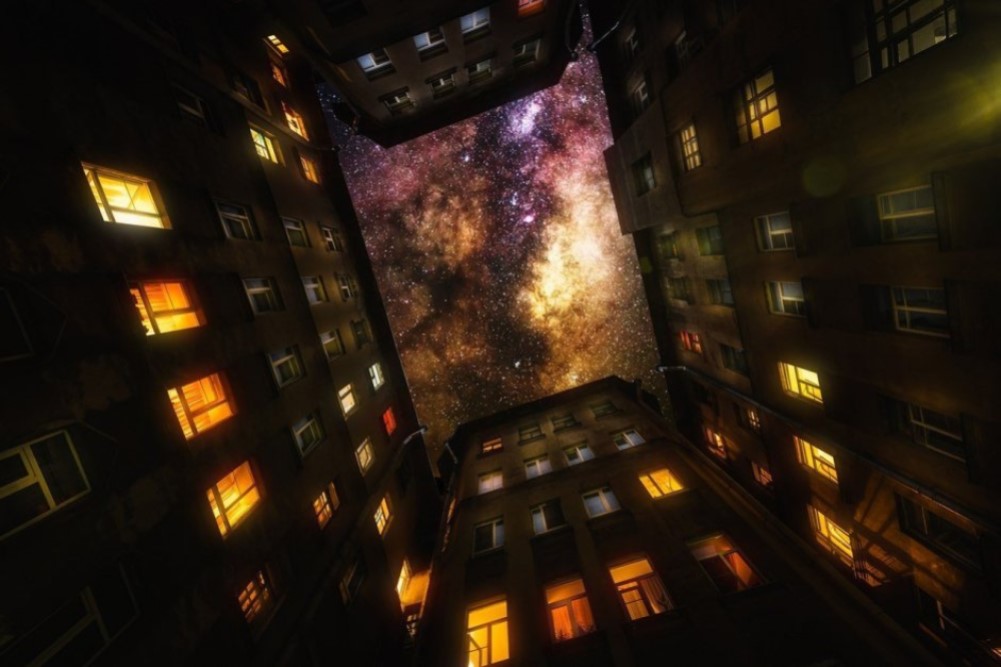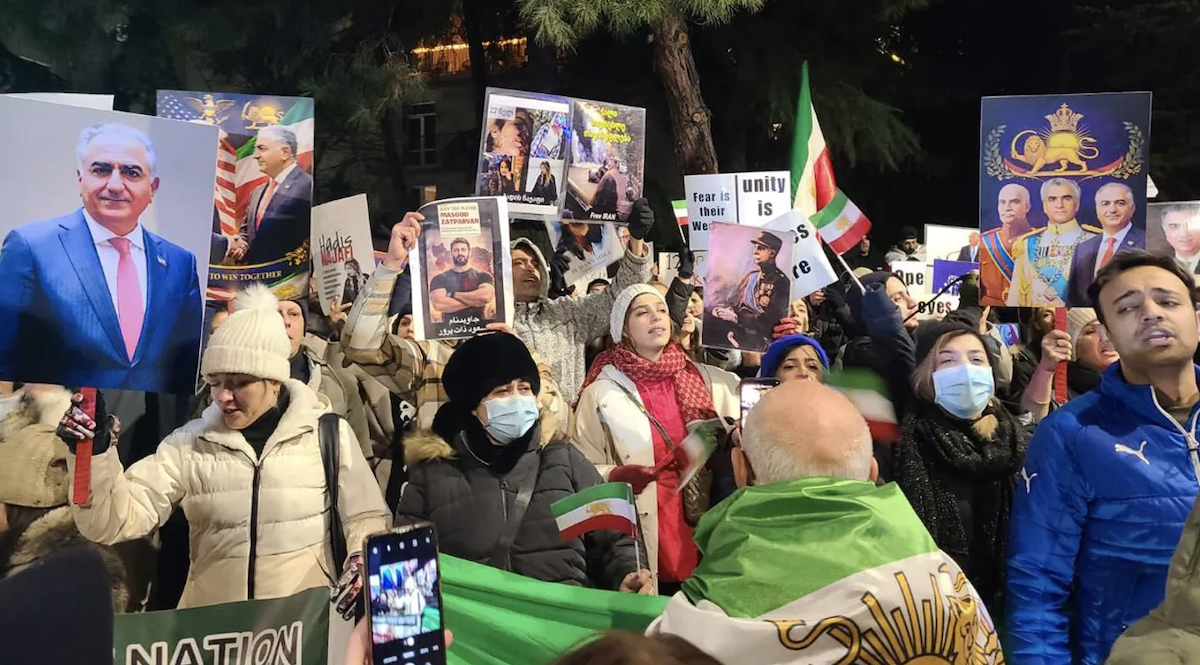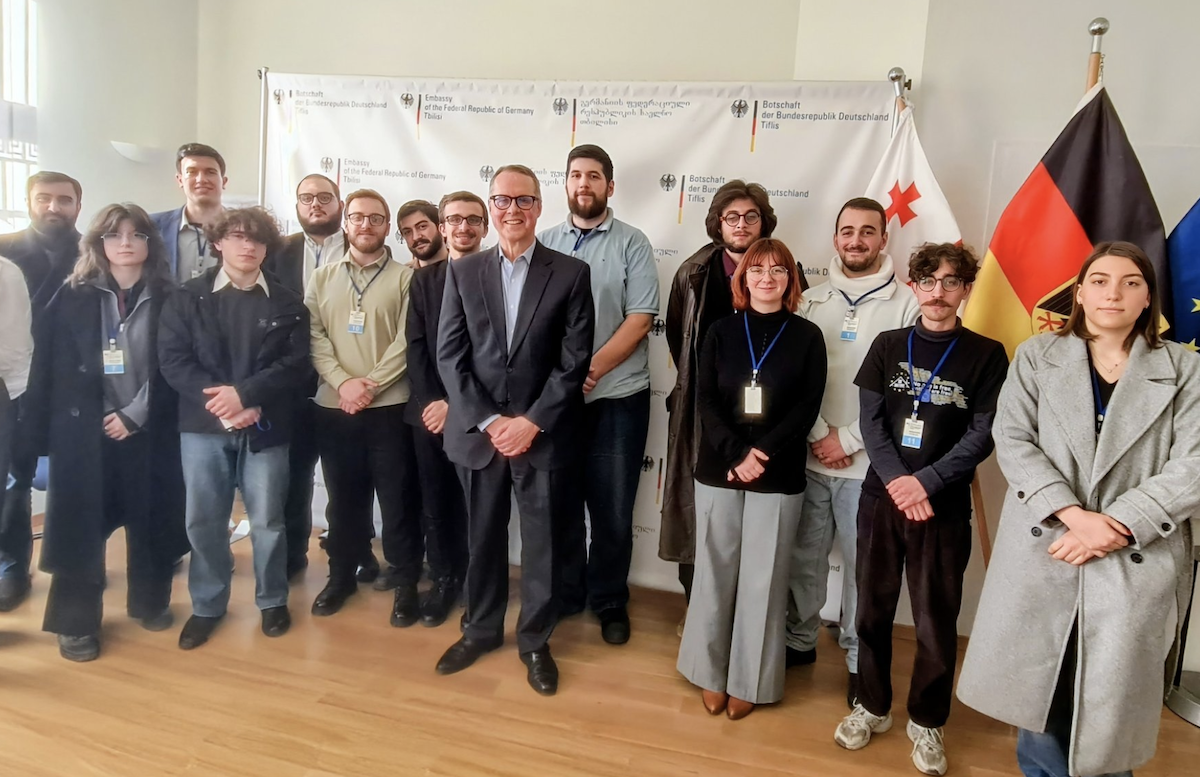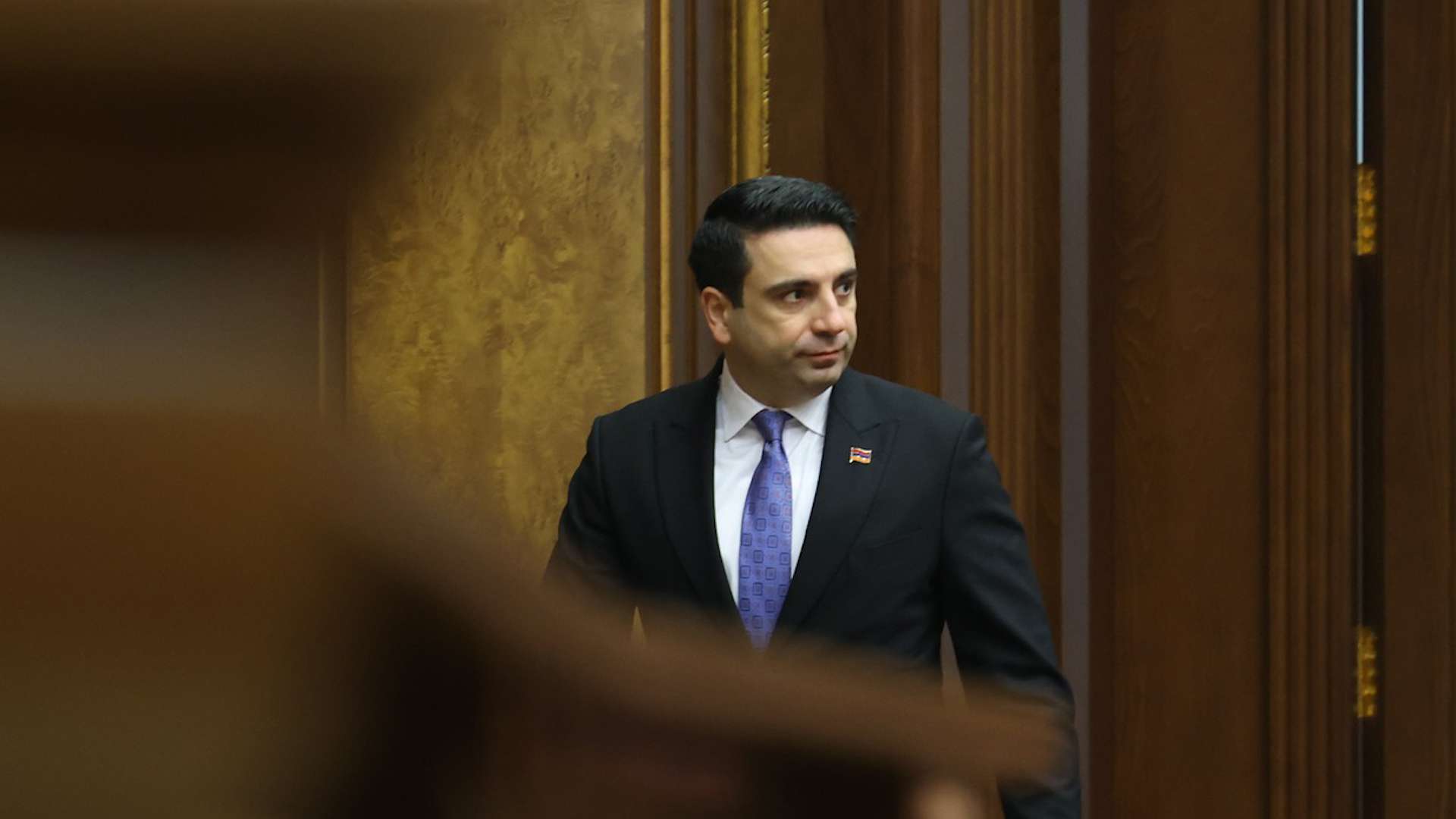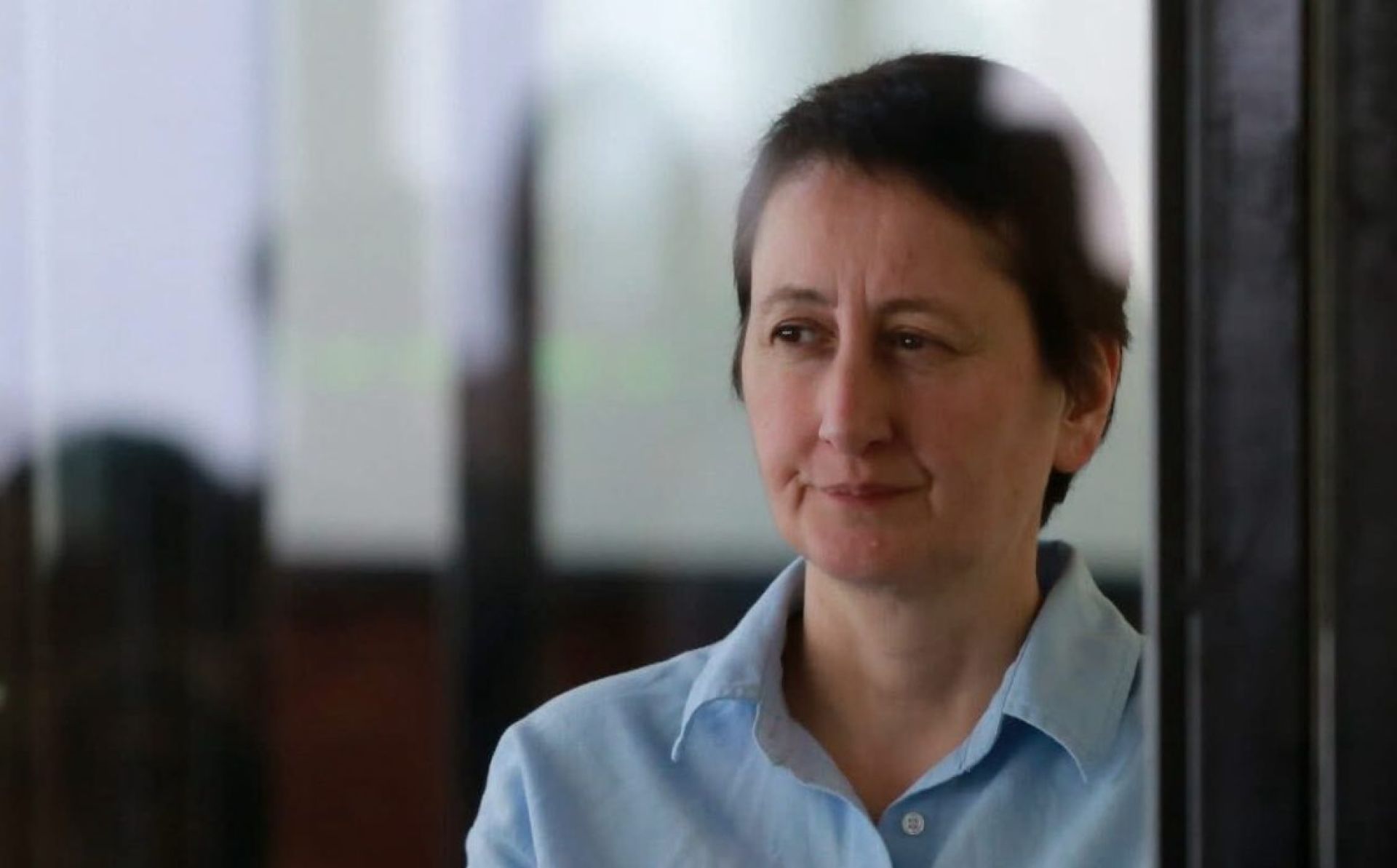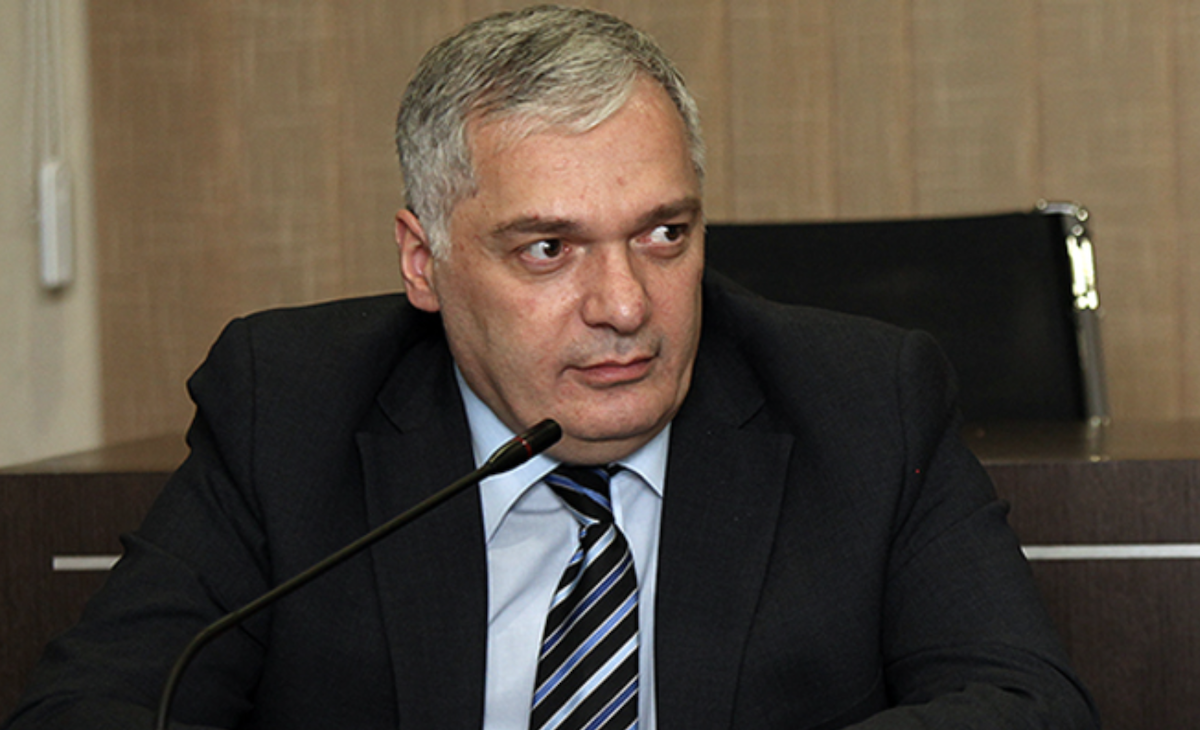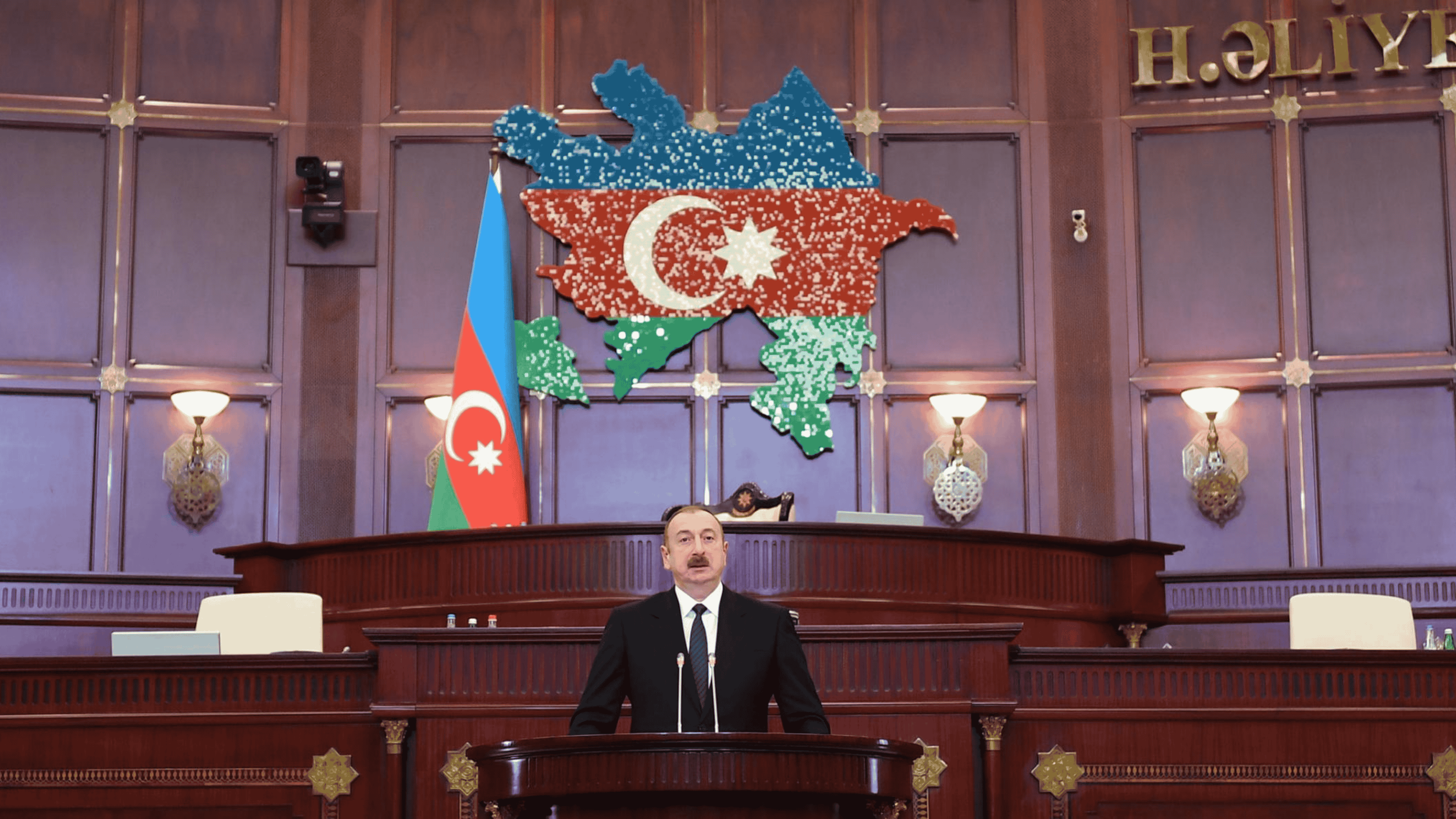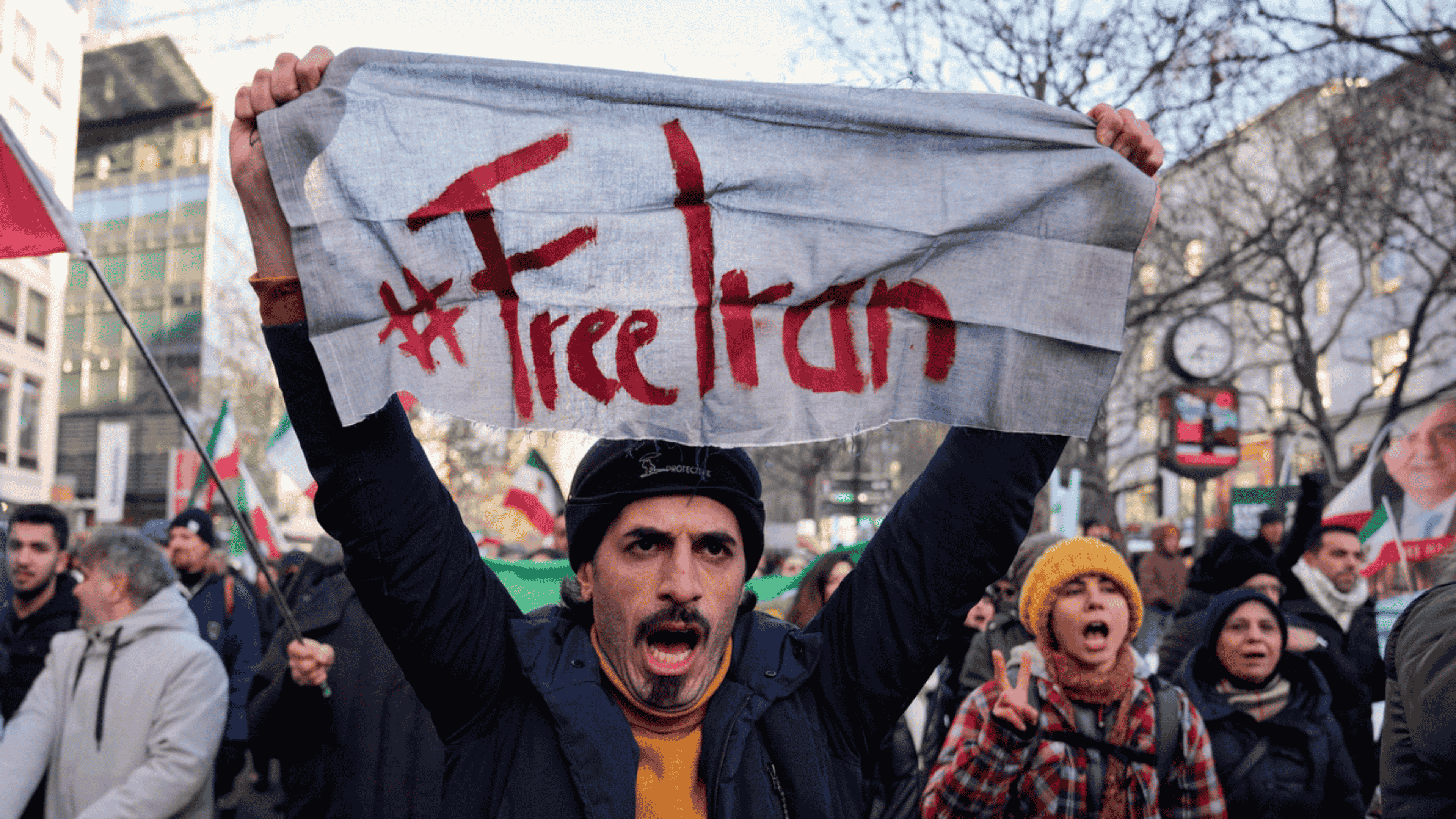Georgians protest against media forum financed by the Russian Foundation
An action plan under the slogan ‘Russia is an Occupier’ was organized by representatives of the opposition and civil society outside Vera Palace Hotel in the centre of Tbilisi.
Protesters are up-in-arms against an international media forum taking place in Georgia. The forum is funded by the Russian Foundation of Presidential Grants, an organisation tied to President Putin and is attended by participants from Russia. The protesters believe that the purpose of the event is the dissemination of Russian propaganda.
“Russia is an occupier – Russia kills,” one of the protesters said to Russian journalist Dmitry Kosyrev, a participant of the South Caucasus Media Forum. Kosarev replied that he did not know who was occupied by whom.
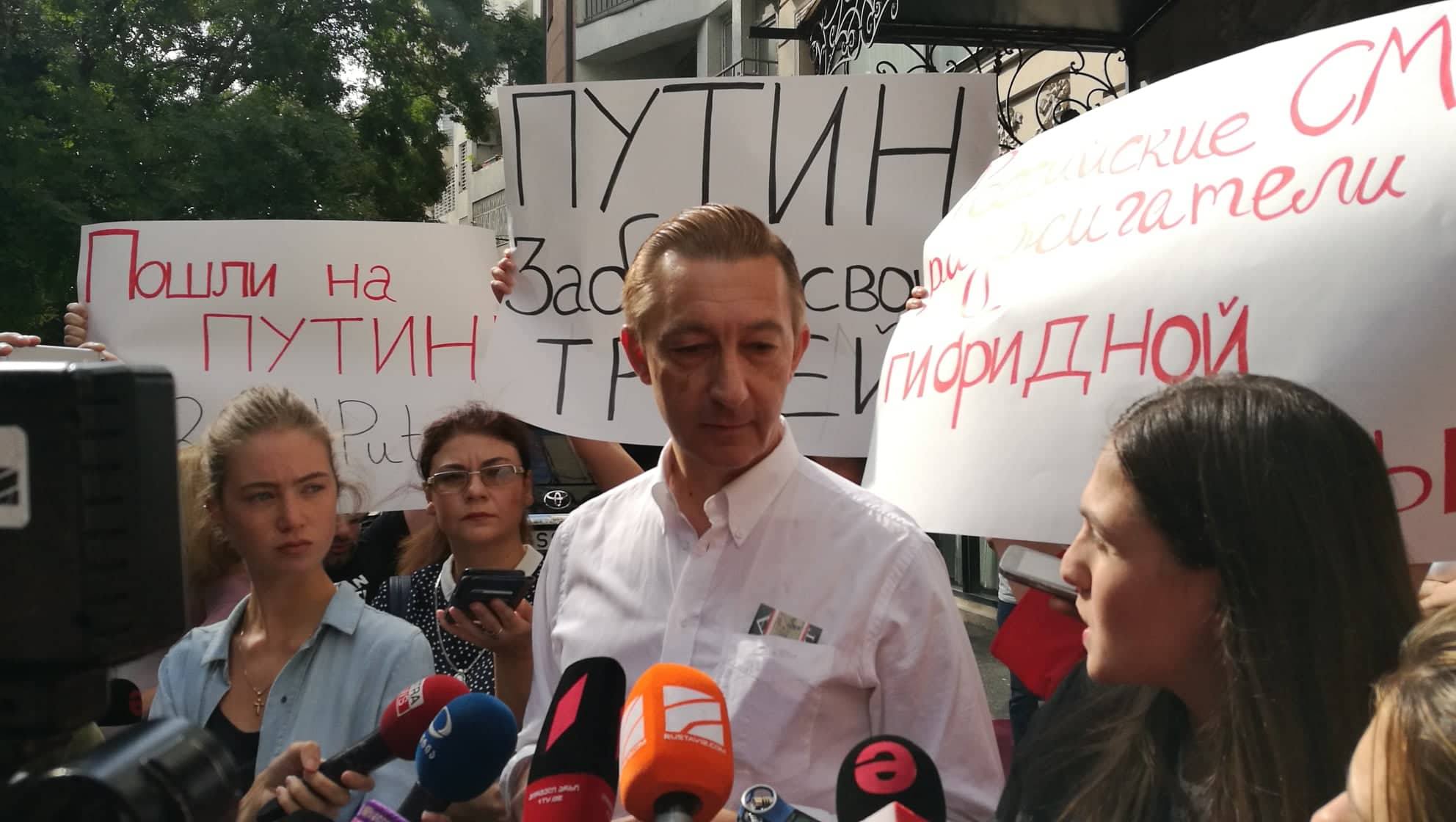
Representatives of the movement criticize the Georgian authorities for allowing ‘Russian soft power’ to be exerted freely in Georgia through propaganda forums that support Putin’s policy such as this one.

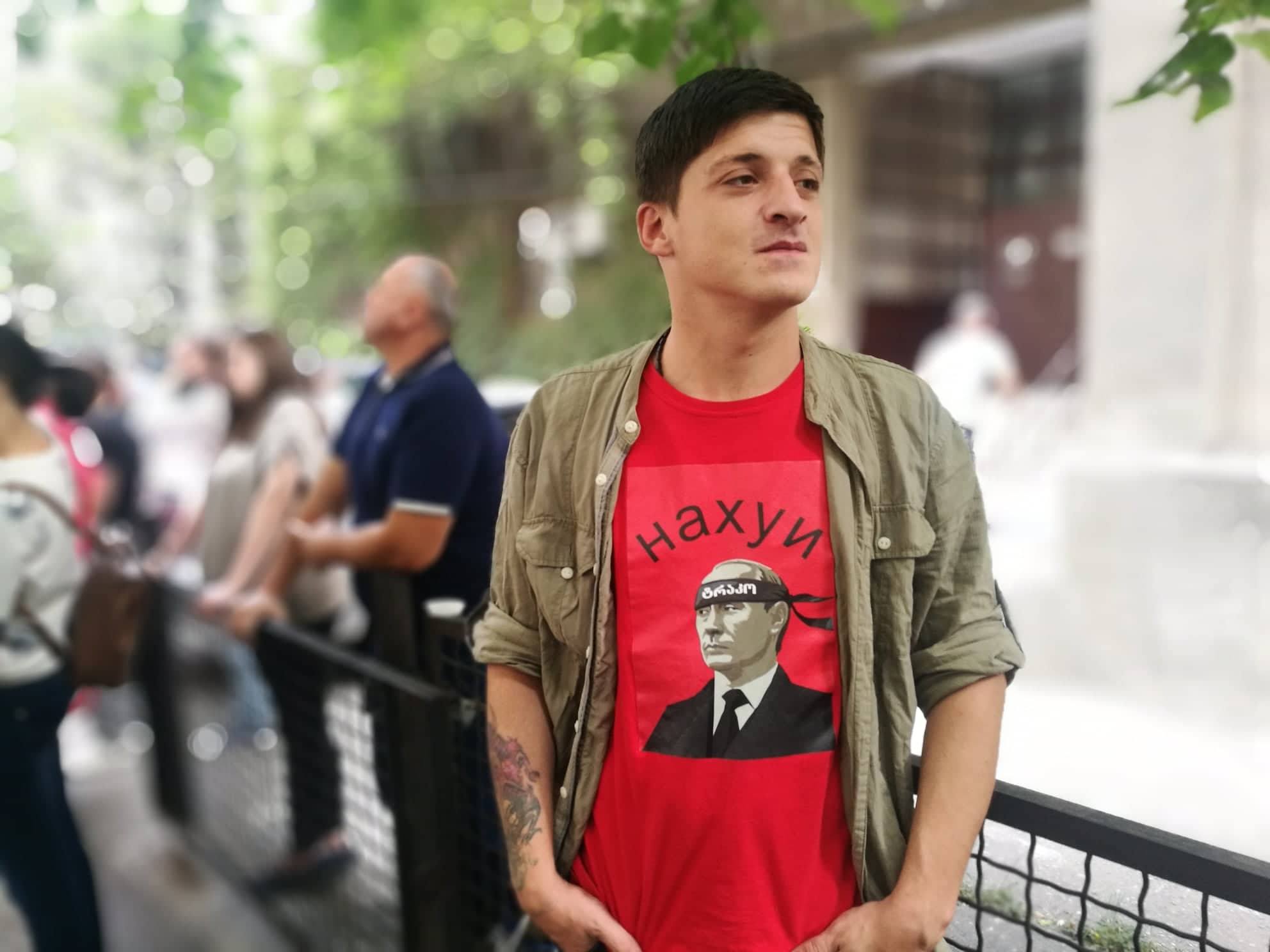
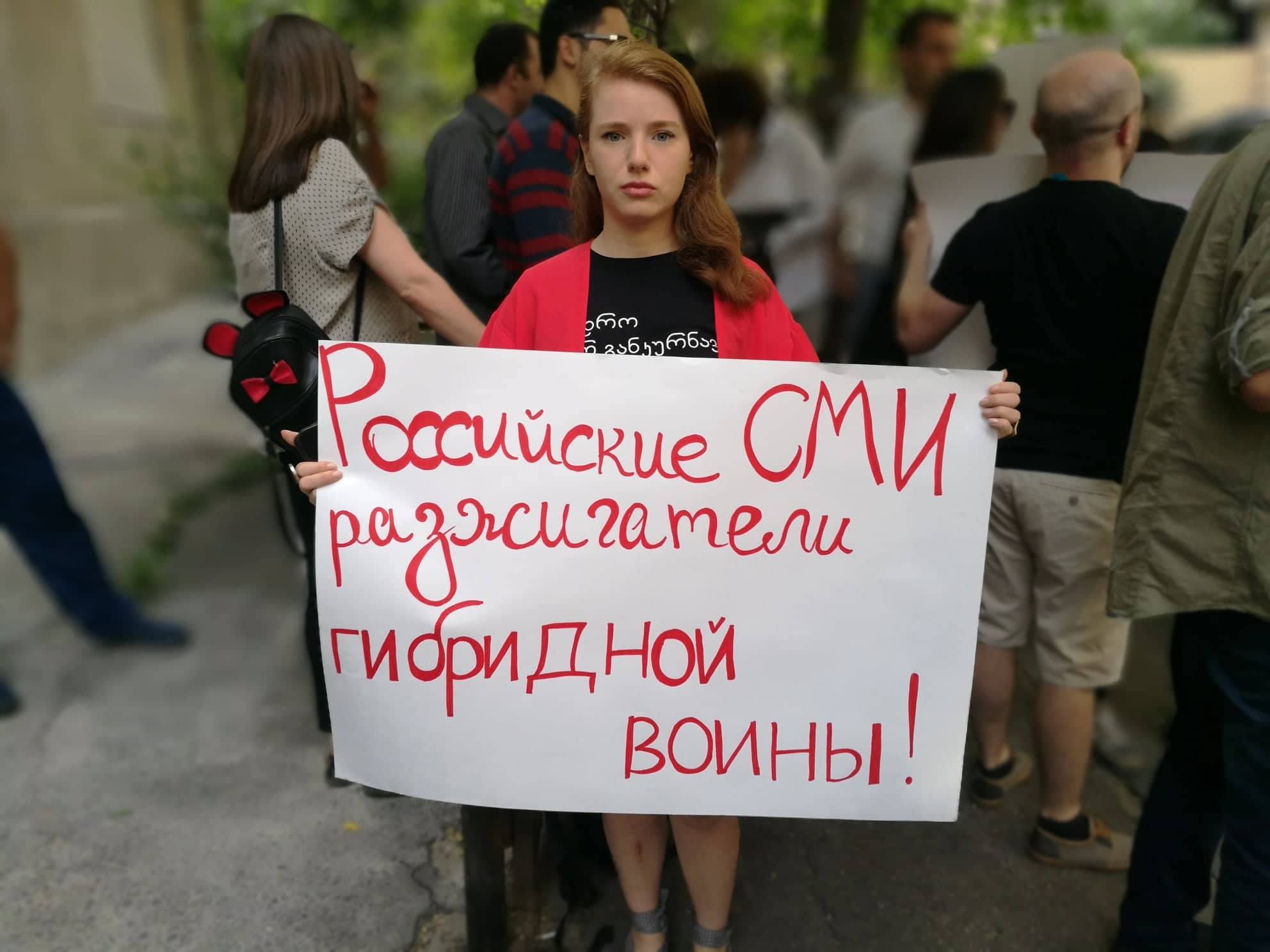
Protestors held a theatrical performance, which they said is a caricature of Georgian authorities who cordially meet people ‘pursuing Putin’s policy’.
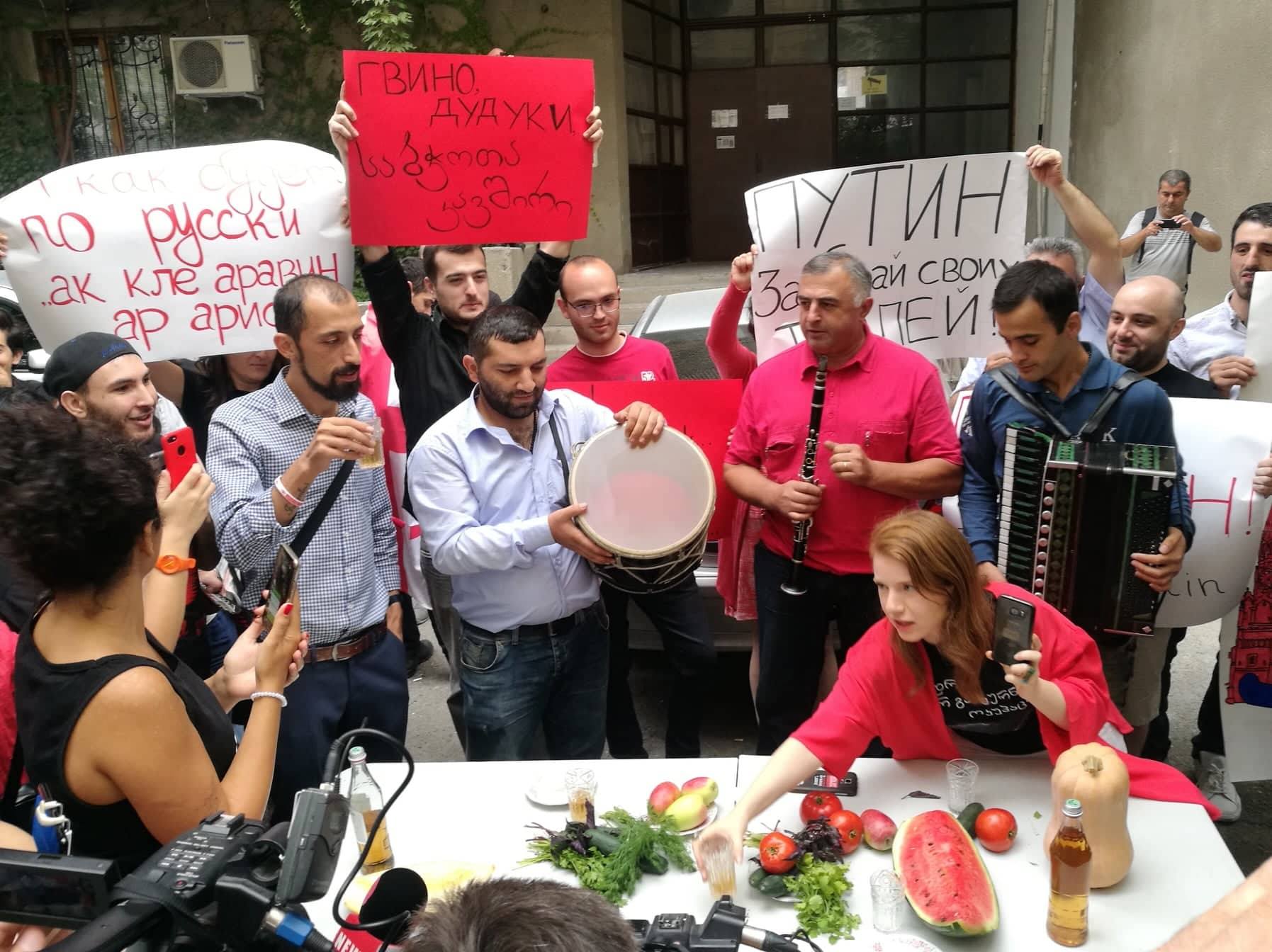
As stated by the organisers, journalists and bloggers from Russia, Azerbaijan, Armenia and Georgia are participating in the forum titled ‘The Role of the Media in Restoring Trust’. The forum will last until 7 September in Tbilisi. The focus of the forum is on ‘the features of the regional political culture, traditions and current trends in media activities of the South Caucasus states, as well as the potential of media communities in overcoming conflicts and strengthening stability in the region’.
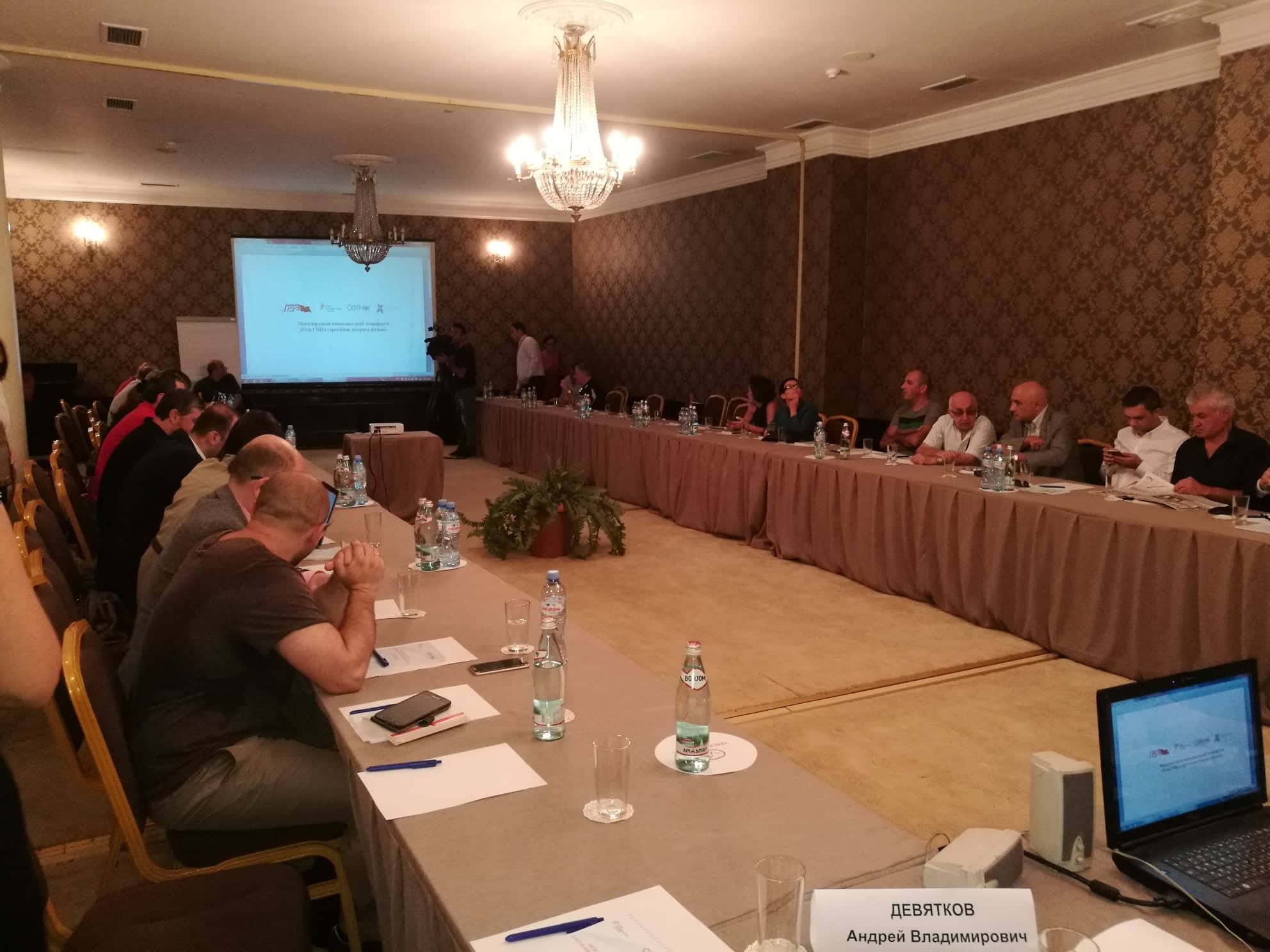
The forum is organised by the Russian North-South Political Centre, the Sodruzhestvo Press Club and the ‘Georgia and the World’ newspaper, one of the most aggressive anti-Western internet publications in Georgia, also funded by the Russian Foundation of Presidential Grants.
However, some changes have already taken place in the forum’s agenda. Three members of the Russian delegation who flew from Moscow were refused entry to Georgia because they had apparently violated the law on occupation.
The first person who was refused entry is Viktor Litovkin, a military columnist for the Izvestia newspaper and the TASS agency; second is the president of the International Council of the Association of Russian Society Researchers (AIRO-XXI) Gennady Bordyugov, and lastly, the senior researcher at the Centre for Global Problems of the Institute for International Studies of the Moscow State Institute of International Relations, Aleksey Tokarev.
Before departing for Georgia, Tokarev joked on his Facebook page about bringing over ‘stereotypes’ in the form of vodka and caviar.
The ruling Georgian Dream party sees no danger in holding such forums in Georgia. According to the party leader and vice speaker of parliament Gia Volsky, no journalists or experts from Russia will be able to influence the course of the Georgian authorities:
“There is no danger. You are well aware of our national position, and no journalist or political scientist can exert any influence on the Georgian authorities. Even if some attempts are made at this forum, which I, by the way, do not intend to visit, I do not see anything terrible in this,” reported Ekho Kavkaza Radio.
The opposition has taken a drastically different point of view. According to European Georgia party member Giorgi Kandelaki, representatives of the Kremlin’s ‘propaganda machine’ have been given free reign to conduct activities in Georgia under the present authorities:
“Under the power of Georgian Dream, representatives of Russian propaganda are in Georgia without problems and they feel very comfortable in Tbilisi. Of course, if there are those who violated the law On the Occupied Territories among these so-called experts, they should not be admitted to the territory of Georgia.”
• In 2017, the Ministry of Defence of Georgia published a document that described the main threats to the country. The document said that Russia and its ‘creeping occupation’ was the main threat to Georgia. The document acknowledged the danger that the Russian ‘soft power’ and hybrid war poses for the country.










